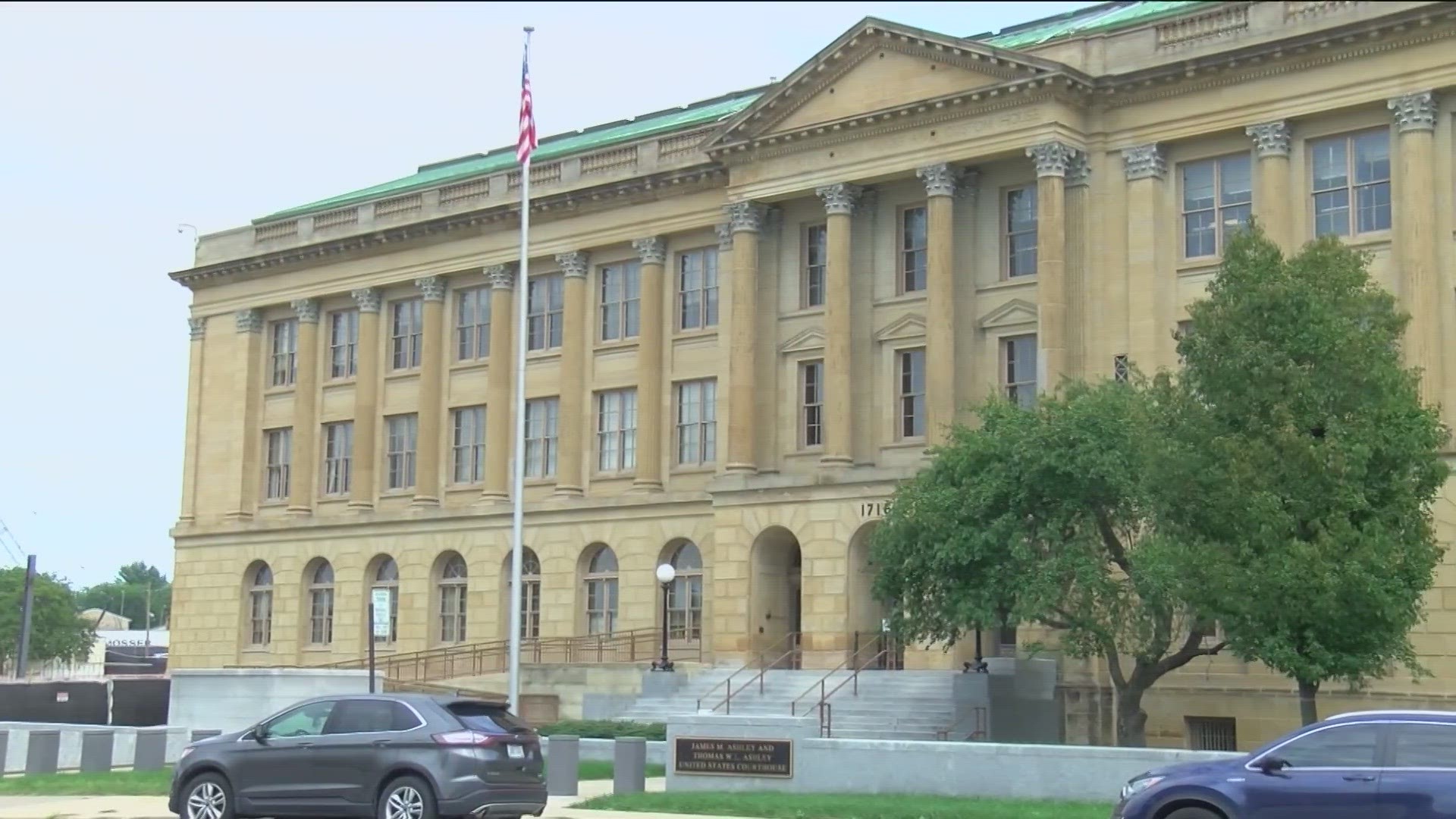TOLEDO, Ohio — The first day of testimony in the Gary Johnson bribery trial got under way Tuesday morning in the federal courthouse courtroom of Judge Jeffrey Helmick.
The former Toledo city councilman is charged with two counts of Hobbs Act extortion under color of official right, meaning that the government believes he accepted money in return for favorable votes.
The payments came from local businessman Nabil Shaheen, who was working as an FBI informant. The first exchange of money occurred in January, 2020, and was a check for $1,000. The second payment was $2,000 in cash, which was paid in April of 2020. The government claims the money was meant to influence to council votes on special-use permits for proposed Internet cafes on Central Avenue and Secor Road.
The defense does not deny that Johnson received the money, but said in opening statements Tuesday that Johnson believed the funds were campaign donations for Johnson, who was on city council but also running for Lucas County sheriff in 2020.
Shaheen was working with the FBI when he went to city council offices in January, 2020, while wearing a recording device. At that point, the FBI was investigating councilmen Yvonne Harper, Tyrone Riley, and Larry Sykes for accepting bribes. Special Agent Michael Huber testified that Johnson called Shaheen into his office to talk about yard signs he wanted to put up at Shaheen's businesses.
Huber said the conversation turned to special-use permits for a proposed Central Avenue business and the men later met at a local restaurant. At that point, Shaheen offered Johnson $1,000 but said the money could not come from him because it would anger other sheriff candidates. It was eventually decided to have the check come from another businessman, Ali Mahmoud.
Johnson's defense said the second payment was the result of Johnson needing money after Gov. Mike DeWine stretched the primary date to the end of April because of COVID. Johnson ran out of money and needed $2,000 for an email outreach to voters. In grand jury testimony, Johnson said that he tried several known campaign contributors to get the money, but Shaheen and a family member agreed to give him the $2,000.
The defense said Johnson asked for it in cash because he needed it immediately for the campaign outreach. Once he learned he had to report it as coming from Shaheen, the defense said he decided not to take it as a campaign donation and put it in a dresser drawer, until he could return it to Shaheen.
Attorney Rich Kerger said he did not have time to return it before his client was arrested and said he tried to give it first to the FBI, but then to his attorney, David Klucas. Kerger said the money later disappeared and Johnson never spent any of it.
The day after Shaheen agreed to provide Johnson the $2,000, the Secor Road proposal was voted down.
Johnson's trial is expected to continue for several weeks.
Johnson is one of four Toledo City Council members arrested in 2020 and charged in the federal corruption case. The three other defendants -- former council members Riley, Sykes and Harper -- pleaded guilty in December to accepting bribes during their time in office in return for legislative support, according to the U.S. Department of Justice.
In December, Riley and Sykes pleaded guilty to one count of Hobbs Act extortion under official color of right, which means a public official wrongfully took money or another valuable not owed to them or their office.
Harper pleaded guilty to one count of Hobbs Act conspiracy. Riley, Sykes and Harper are scheduled to be sentenced later this month. The charges the three face all carry up to 20 years in prison, up to $250,000 in fines and up to three years of supervised release.
Johnson is also accused of violating the Hobbs Act.
Local attorney Keith Mitchell was also charged in the case in 2020, but he died in 2021 before facing trial. He was accused of accepting bribes on Harper's behalf.
More on WTOL:

